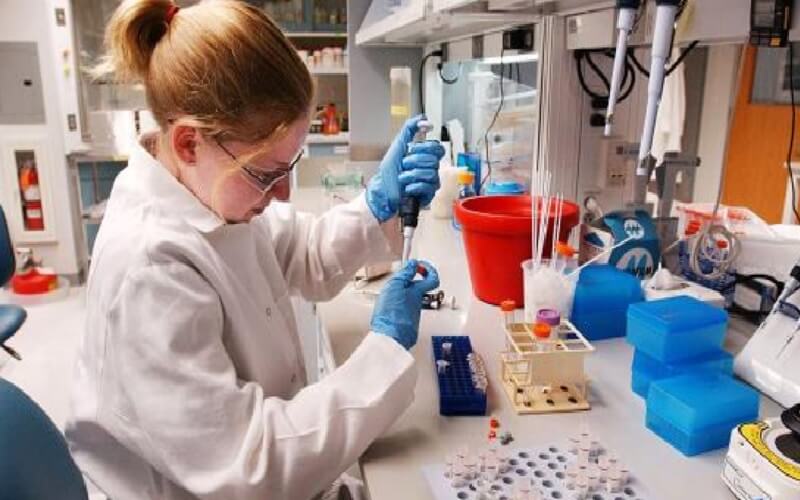
The biopharma manufacturer said a late-stage trial testing its immunotherapy Opdivo in patients with a common type of lung cancer met its main goal.
Bristol-Myers, a biopharma manufacturer, also reported a quarterly loss due to a charge it took related to recent U.S. tax law changes.
Bristol-Myers Squibb on Monday provided some positive data on its immuno-oncology drugs for the most lucrative lung cancer market but it fell short of giving clarity on its ability to compete with a rival treatment from Merck.
Shares fell about 4 percent.
Bristol-Myers, which also reported better-than-expected quarterly earnings, said it found a new way to identify cancer patients who are treatable by immunotherapy drugs.
It said non-small-cell lung cancer (NSCLC) patients whose tumor cells had a high level tumor mutation burden (TMB) showed a highly statistically significant improvement in progression-free survival with a combination of its immuno-oncology drugs Opdivo and Yervoy versus chemotherapy.
Companies had been classifying patients in terms of a tumor’s expression of a protein called PD-L1. Better diagnostic tests could improve predictions of whether cancer patients are likely to benefit from the costly treatments.
Progression-free survival is a measure of how long a treatment can keep the disease from worsening. But analysts said they were waiting to see if it actually helps patients live longer, a standard that Merck’s Keytruda has demonstrated in combination with chemotherapy in newly diagnosed advanced lung cancer.
“Overall survival is what matters,” BMO Capital Markets analyst Alex Arfaei said in a research note, noting that regulators favor that standard. “The survival benefit may not be that great, and perhaps not as good as Merck’s.”
The company said it plans to release overall survival data for the Opdivo and Yervoy combination toward the end of the year or early next year.
Bristol-Myers was a pioneer in immunotherapy, but Merck has nearly pulled even, primarily via Keytruda’s use in lung cancer. Sales of Keytruda were just shy of the $1.36 billion that BMS pulled in with Opdivo in the quarter.
The company posted a fourth-quarter net loss of $2.33 billion compared with a year-ago profit of $894 million, due to a one-time $2.9 billion charge related to the new U.S. tax reform law.
Excluding one-time items, Bristol-Myers said it earned 68 cents per share in the quarter, beating analysts’ average expectations by a penny, according to Thomson Reuters.
Sales of blood thinner Eliquis, which the company shares with Pfizer, rose nearly 44 percent to match Opdivo’s sales of $1.36 billion.
The biopharma company forecast 2018 adjusted earnings per share of $3.15 to $3.30. Analysts had forecast $3.23 per share.
Source: CNBC
Read more:
A biotech out of Oxford is developing a vaccine to fight every type of flu
Cellular Biomedicine Group Announces $30.6M Investment From Sailing Capital Overseas Investment